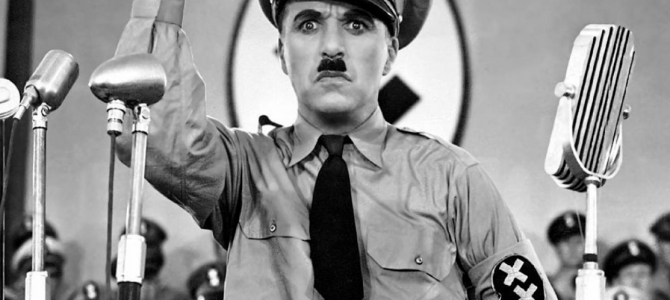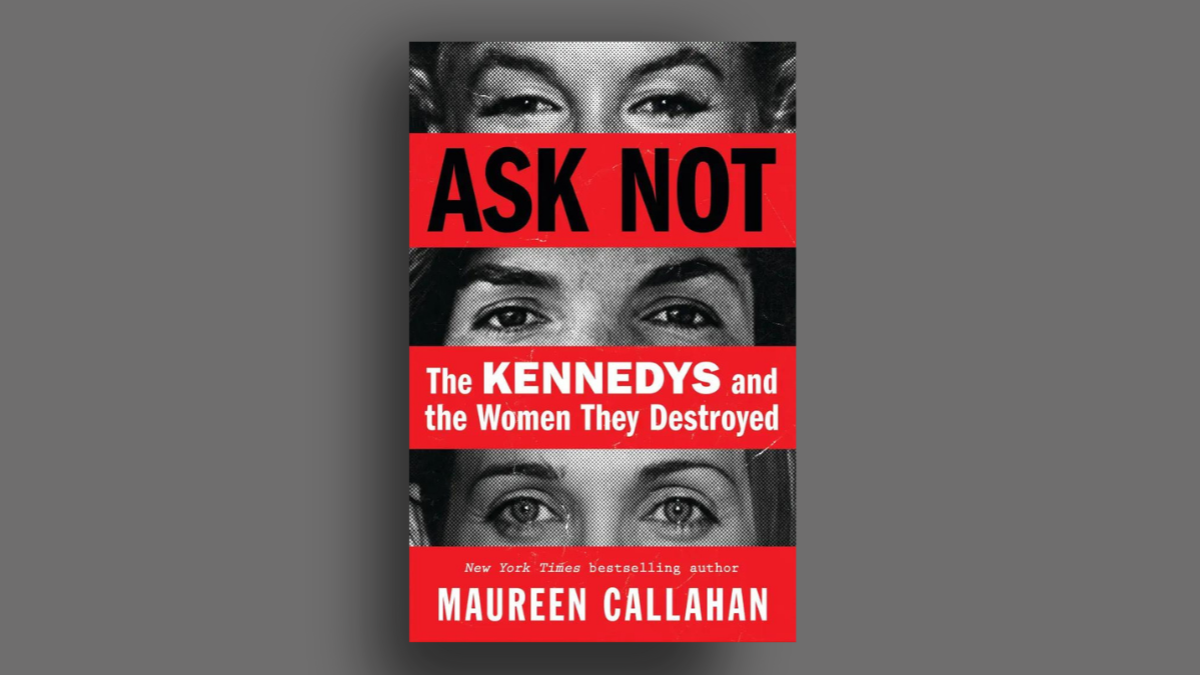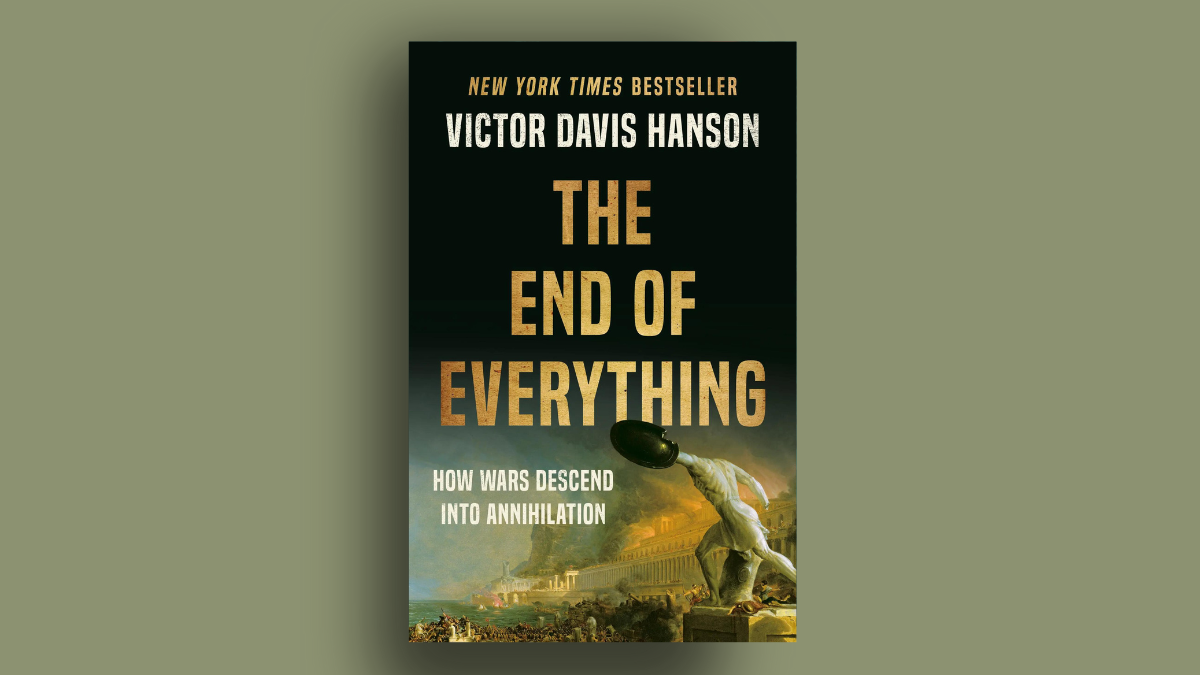
Picture this. Several nations, long slumbering, are stirring to take their place as global powers and assert their will over their would-be spheres of influence. Meanwhile, an economic crisis has led major powers to be more concerned with problems at home than with dangers abroad. Because of these uncertainties, many countries have turned toward populist leaders who embrace nationalism as a balm for the ailments of the people.
This could just as easily be a description of of today as it is the 1930s. A wave of nationalism is sweeping Europe and the U.S., the international order is in disarray, and a growing number of countries are rejecting economic globalism and embracing protectionism. That’s why Piers Brendon’s book, The Dark Valley: A Panorama of the 1930s, chronicling the lead-up the second world war, should be required reading. Although published nearly 17 years ago, it serves both as a reminder of our past and a warning for our future.
But I’d like to get out in front of something before proceeding. Our society has a tendency to compare anyone we don’t like with Hitler, which inevitably leads to protests over how this overstatement waters down the Nazi leader’s terrible crimes against humanity. That’s a valid point. But what goes out with the bathwater, so to speak, is the ability to talk reasonably about the parallels between the years leading up to World War II and today, including isolationism, appeasement, the economy, and populism.
Making these comparisons, even if they require referencing “Hitler” or “Mussolini,” is not the same as equating someone with either of these totalitarian leaders. Given the scale and human suffering caused by World War II, nothing could be more natural than to look for similarities between the years that preceded that war and the times we live in today. Who wouldn’t want to call attention to those similarities if there were a chance it might halt the road to war, no matter how distant? Trump is not Hitler. Obama is (probably) not Chamberlain. But that doesn’t mean the 1930s, the rise of the Nazi party, and the terrible pursuit of appeasement shouldn’t concern us today as we survey the state of the world.
Appeal of Populist Leaders
The appeal of populist leadership in the early 1930s was due in large part to the crushing global economic Depression. Europeans sought a strong leader who would consolidate power and forcibly improve their economic suffering. Hitler, writes Brendon, “exploited fears that the Depression was becoming even bleaker” in order to gain and hold onto power. Leaders from Europe to eastern Asia offered national superiority as the solution to their countries’ problems.
Hitler stoked Germany’s sense of national pride by promising to right the wrongs inflicted by the punitive Treaty of Versailles and to unify the Germany people. Mussolini similarly trumpeted the virtues and supremacy of the Italian race. In Japan, the devastation of the farming community, known as “the backbone of the nation,” led to the rise of militarism, whose goal was to “purify the Japanese national essence or way of life (kokutai).”
We see a disturbing echo of this kind of nativism today, as populism gains traction across the West in the face of economic hardship. Marine Le Pen, who is currently leading three-way polls in the French presidential election, is known for her anti-immigration stance and emphasis on exclusionary French nationalism. Other European nations, like Hungary, have been embracing nationalistic populism for several years now. Trump, meanwhile, proclaimed his inauguration day a “National Day of Patriotic Devotion” in which “a new national pride stirs the American soul and inspires the American heart.” The slogan of his administration, he proclaimed, would be “America First.”
Common Strategies
But it isn’t just the new wave of nationalism sweeping the globe that hearkens back to the 1930s, it’s the way in which it’s unfolding. The campaign strategies utilized by the Nazi party parallels those used by populists today, most notably Trump. In both cases, revolutions in technology and tactics allowed for the rise of a non-traditional leader.
Joseph Goebbels was a grandmaster of propaganda and campaigning. He had Hitler fly from city to city for in-person appearances at Nazi rallies, and would air drop propaganda flyers over various towns and cities. Both of these methods were innovative at the time, and gave the Nazi party direct access to the people. It gave the people direct access to the party’s platform and leader as well. Although Twitter might seem a far cry from airborne paper-pamphleteering, Trump’s unprecedented use of social media similarly gave him a direct pipeline to voters, letting them know his every thought.
The aim of Goebbels propaganda was to encourage “a fanatical outburst of racist and national passion,” writes Brendon. Whether or not Trump is racist is besides the point, but there can be little doubt that many of his Twitter and cable news stunts were directed at renewing national pride and making him “America’s candidate.”
Like Trump, Goebbels found truth to be incidental while campaigning. In 1927, Goebbels told a crowd that “Berliners may insult us, slander us, fight us, beat us up, but they must talk about us.” Trump’s success in the primaries was largely due to his incessant presence on cable news, which loved to question him about his latest outrageous foible or statement. It didn’t matter that he was being mocked, pilloried, or criticized. Everyone was talking about him.
Populists are Unwieldy and Often Underestimated
Hitler’s rise to power also shares with our newly elected president the fact that party elites thought he could be controlled. When Hitler finally became Chancellor in 1933 it was with the help of former chancellor Franz von Papen who would serve as Hitler’s vice-chancellor. Papen, like many others, thought he would be able to “civilize Hitler” and train him to behave like a proper politician. Likewise, the Republican establishment insisted they could “manage” Trump, that he would be much more presidential once elected.
Party elites also misjudged Trump’s allure, just as intellectuals in the 1930s underestimated the appeal of populist politicians and their persuasive rhetoric. Despite the hypnotic trance in which Hitler put attendees at his rallies, Brendon writes:
Sophisticated minds found it fatally easy to underrate Hitler. Thomas Mann said that he offered merely ‘politics in the grotesque style with salvation-army attractions, mass fits, showground-stall bell-ringing, hallelujahs, and dervish-like repetition of monotonous slogans till everyone is foaming at the mouth.’
It was easy to dismiss Hitler because he was so far outside of the political mainstream at the time. To the elite ruling class, he was crass and poorly dressed, resembling “a waiter in a railway station restaurant.” He was a bohemian at heart with bohemian habits. Hitler once said “They underestimate me because I have risen from below, from the ‘lower depths,’ because I haven’t an education, because I haven’t the ‘manners’ that their sparrow brains think right.” But Brendon notes that “when Hitler spoke he convinced audiences that he really was the savior of Germany.”
Other would-be authoritarians were similarly viewed, like Oswald Mosley, who founded the British Union of Fascists in 1932. (As an aside, Mosley was the model for the P.G. Wodehouse character Roderick Spode, the brutish foil who regularly gets his comeuppance.) Elites, Brendon writes, failed to see Mosley’s appeal to the working class and the unemployed:
“Intellectuals might dismiss his speeches as booming banalities ‘without a flicker of wit or wisdom.’ But when, at a well-attended Albert Hall meeting in the spring of 1934, Mosley proclaimed that fascism was ‘in accord with the new economic forces of the modern age and with the spiritual urge of the post-war world,’ he was cheered to the echo.”
These descriptions mirror the dismissal of Trump throughout his campaign, even more so than attitudes toward other populist politicians in Europe. Few in the national media or political establishment were able to see and understand his appeal. They criticized his incoherent speech, in a working class accent no less. He talked about making America great but didn’t know anything about policy. He was the definitive non-traditional candidate. And so they assumed he couldn’t last.
But the people loved him. They stood in line for hours trying to hear him speak. They applauded wildly in packed stadiums. Trump’s base felt that he understood them like no one else. That he could save them.
The point isn’t that Trump is going to govern like Hitler or that he has other essential qualities in common with him. As Kevin Williamson recently pointed out, “This isn’t Nazi Germany, none of you ladies and gentlemen in the pink hats is Dietrich Bonhoeffer.” But rather, that populism is an unwieldy beast, often misunderstood and always difficult to control.
The U.S. coastal elites lazily thought that the days of populism were gone, never to be repeated. But as nationalism creeps back onto the international political stage, they are being proven wrong. This serves as a reminder of what a dangerous proposition it is to assume that the past is tucked safely behind us.
Britain and France Lacked Imagination That Another War Was Possible
British and French politicians made a similar mistake in the 1920s and 30s when it came to rearming their militaries. After the horrors of World War I, the leaders of these countries found it beyond the pale that they would again need to be prepared for a large scale armed conflict. Moreover, they were distracted with the economic depression, and their people were exhausted.
In France, rather than develop offensive strategies the military focused only on the defensive. This belied their unpreparedness for war and their unwillingness to take the initiative, if need be. They were overly confident in their “impenetrable” Maginot line, dismissing innovative military technologies like tanks and planes. Brendon writes, “The barricade unquestionably engendered a ‘Maginot mentality,’ a demoralizing apathy, a grand illusion that the nation could resist invasion without really fighting.”
This forecast France and Britain’s policy of appeasement in the years leading to the outbreak of war. In fact, it was their underfunded militaries and lack of preparedness that contributed to their weak negotiating tactics. According to Brendon, habitual underfunding of the British military “ensured that British plenipotentiaries would always negotiate from a position of weakness.”
Appeasement Emboldens One’s Enemies
With Germany’s annexation of Austria and threats to invade Czechoslovakia, war became more of a possibility in the second half of the decade. The French and British were in a panic to prevent it at any cost. They pursued every avenue to avoid a confrontation with Hitler, humiliating themselves in the process. As France’s foreign minister from 1938 to 1939, Georges Bonnet, bluntly put it, “Let us not be heroic. We are not up to it.”
Appeasement was always justified by promises made by Hitler, who, no matter how many times he went back on his word, was continually believed. The most famous example was Hitler’s assurance that he was only interested in the portion of Czechoslovakia containing German nationals. After ceding this to him, the democracies watched as he invaded the remainder of the country.
But appeasement only emboldened Germany and Italy. The obsequious behavior of Britain and France toward the Third Reich left Mussolini, who valued strength above all else, disgusted with the decadence of the democracies’ weakness, further driving him into Hitler’s arms. When British Prime Minister Neville Chamberlain made several trips to Germany to bargain for peace during the Czechoslovakia crisis, he further demonstrated his pusillanimity to Hitler and Mussolini. The latter reacted by saying. “As soon as Hitler sees that old man, he will know that he has won the battle. Chamberlain is not aware that to present himself to Hitler in the uniform of a bourgeois pacifist and British parliamentarian is the equivalent of giving a wild beast a taste of blood.”
This is what comes of revealing that nothing could compel you to go to war, which was Obama’s primary foreign policy mistake. He made it clear from the outset that he would be negotiator-in-chief, not commander. His goal was to seek peaceful resolutions in all things. Yet, crucially, he wholly misunderstood that diplomacy requires the threat of force. He, like Britain, failed to see that “Covenants without swords are but words.” This has left the world a much more unstable place today and has signaled to powers such as Iran, China, and Russia that they can do as they like.
Failures of Coordinated Security
Obama wanted instead to lean on international consensus and coordinated security through the United Nations. But here, too, the 1930s has important lessons to offer about the hazards of a weak international body. The League of Nations, established to ensure peace after World War I, first began to show that it was a hollow institution after Japan’s invasion of Manchuria. According to Brendon, the League’s failure to restrain Japan,
“fatally undermined the principle of collective security and gave international sanction to the policy of appeasement…by resorting to non-recognition and relying on moral condemnation the League demonstrated that it was not prepared to enforce its will. The tragedy of the 1930s was that supporters of the League’s ideals took so long to realize that peace could only be defended by war.” [Emphasis added.]
After inaction in the face of Japan’s takeover of Manchuria, the League’s failure to censure Mussolini when he invaded Ethiopia was its death blow. Léon Blum wrote of the affair:
The League of Nations no longer condemns the Fascist acts of aggression; the League ‘notes,’ the League ‘does thus and thus,’ the League ‘deplores’…and what can be read between the lines: the League’s confession of impotence, its abject surrender, its acceptance of the fait accompli.
The impotence of the League was not lost on the authoritarian powers. Japan was contemptuous of the League’s feebleness, but saw in it a pathway for further conquests in China. Mussolini called the League “a farce.”
The similarities between the League of Nations and the UN are striking. The UN does little more than weakly censure rogue regimes or call for cease-fires that are easily vetoed, as happened in the Syrian civil war. This sends the message that there is little chance of retaliation for invading countries, violating treaties, or bombing civilians—even with chemical weapons.
This isn’t to say that effective coordinated security isn’t possible. As Brandon’s book reminds us, coordinated security organizations become useless only when their members no longer act as one or when they stop fulfilling their avowed purposes. This is why it’s worrisome that earlier this month, Trump again called NATO “obsolete.” NATO is only obsolete in so much as the U.S. backs away from its responsibilities to NATO member countries. It’s obsolete only because he would make it so.
But what’s more troubling about Trump’s dismissal of NATO, is the underlying implication that its members aren’t really at risk from Russia. Underestimating one’s enemies, or insisting that they don’t exist, was the fatal flaw of British and French foreign policy in the 1930s. Its outcome cost millions of lives.
Doomed to Repeat?
After the end of the Cold War, Francis Fukuyama said that history was over and that all of the great ideological conflicts of the world were resolved. He didn’t anticipate the rise of Islamism or the resurgence of Russia. He also made the mistake of thinking that history can’t repeat itself.
And perhaps it doesn’t. But, as the saying goes, it does rhyme. The lesson of the 1930s is that history isn’t so very far away. It’s not a distant legend, unrelated to our lives. It is here with us. There will never be a war to end all wars. Nothing is out of the question. Nothing has been resolved. We could go to war again. We will be attacked again.
But by doubting these things, by pretending that they are impossible, we put ourselves at great risk, just like the democracies of the 1930s. One way or another, we will come to learn this lesson again.









